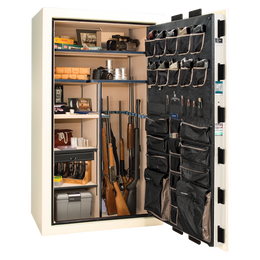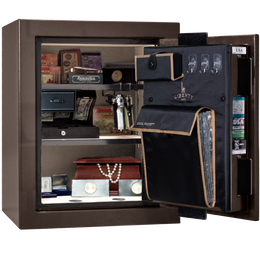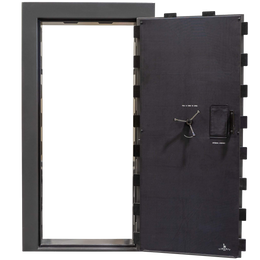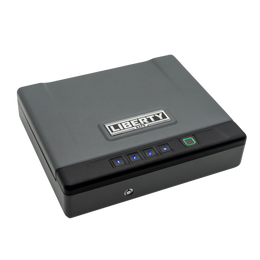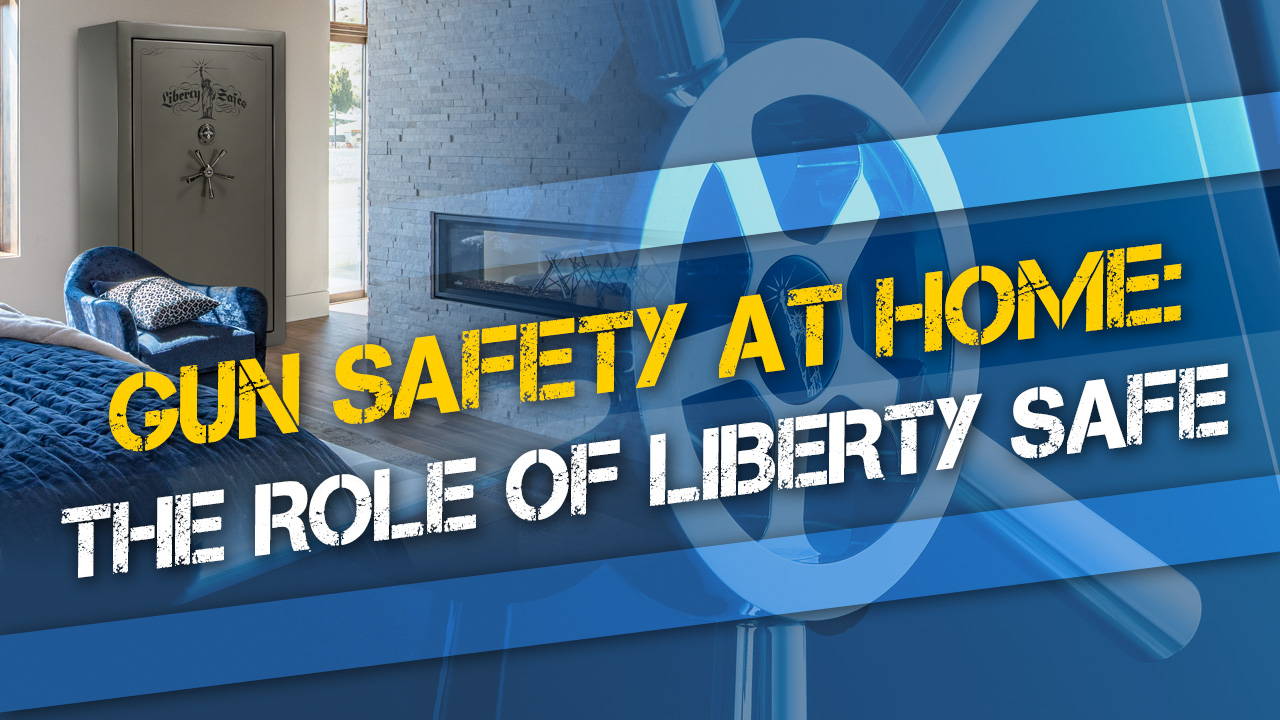When discussing things most people wouldn’t think to put in their home safe, the topic of medicines, drugs, or other pharmaceuticals should definitely be on the list for consideration. Should your home safe also serve as your secure medicine cabinet? It’s not a bad idea, particularly if you have painkillers such as opioids around. These compounds are potentially very harmful in the wrong hands, and can be extremely addictive. Keeping them locked securely in your safe is a basic safety precaution, and can prevent the temptation of family members or visitors to take them. (Sad to say this is a primary source of opioid abuse.)
In this article:
- Why you should keep your medicines, drugs, and pharmaceuticals locked in your safe
- Benefits of storing drugs and medicines in your safe
- Proper storage and disposal of prescription medications
There are other benefits to storing medication in your safe as well, which we’ll go over in more detail below.
Opioids and other prescription painkillers should be securely locked up (like in your safe)
The opioid epidemic continues to grow in America, with youth use growing at an alarming rate. Many times kids are exposed to powerful opioids by their parents, who may not realize how addicting these drugs are, or after minor surgery such as wisdom teeth removal.
Unfortunately, even relatively brief exposure to these highly addictive opioids can create a dependence on the drug, and once people are hooked, it’s extremely difficult to overcome the addiction.
For this reason, you should always keep painkillers locked in a secure place, and for many people, their home safe is the best option.
The home “medicine cabinet” is sadly a regular source of the beginnings of opioid addiction for family members and youth… even neighborhood kids have been known to rummage through people’s medicine cabinets while using the bathroom.
A National Institutes of Health report on “Pharmaceutical opioids in the home and youth”said that “survey data shows that 60% of adolescents report that prescription pain relievers are easily accessible from their parent's medicine cabinets.” Furthermore, the report also cites “another study on safe storage among 20 patients prescribed opioids at discharge from the emergency department suggest[ing] that suboptimal storage practices are the norm. In this study, a home visit demonstrated improper storage among 19 of the 20 patients.”
Scary stuff. Don’t be that guy. Don’t be the source of a lifelong opioid addiction for someone you know or love. Keep your meds locked in your safe after use.
Additional benefits to storing medications in your safe
If you look up the recommended storage conditions for pretty much anything, including drugs, medications, supplements, etc., you’ll likely find something similar to “store in a cool, dry place, away from direct light and heat sources.” Can you think of a better match to those conditions than your humidity-controlled safe?
All medications and prescription drugs have a shelf-life and will oxidize and degrade over time. This is why they almost always are marked clearly with expiration dates. Storing them properly in a cool, dry place like your safe can extend the effective lifespan of these types of compounds (though we still recommend proper disposal of prescription drugs after the expiration date).
Additionally, keeping a supply of other vital medicines such as antibiotics, insulin, and other life-saving drugs on hand can be a vital means of support in case of shortages, severe weather, social unrest, or other supply chain problems.
Proper storage and disposal of medicines and prescription drugs
It’s important to keep your prescription medications and over-the-counter drugs stored in their original, labeled containers with prescription information and expiration dates. Don’t mix pills from different bottles or batches, and don’t keep prescription meds in other containers when traveling.
When you are finished with your medications (hopefully you realize you should ALWAYS take the full prescription for antibiotics, and never “self-prescribe” antibiotics to other people or your children) and you have some left over (such as anti-anxiety pills, opioid painkillers, or other drugs), and/or when they have reached their expiration date, you should be sure to remove them from your safe and dispose of them properly. The best way is to return them to your local pharmacy, or in some locations there may be police departments, grocery stores, or addiction recovery centers that offer collection/disposal services.
Unused medications should always be disposed of properly or returned to the pharmacy for disposal. (Check with your local pharmacy for their procedures). The FDA has a “flush list” of medications they say are appropriate for disposal down the toilet, but others say (with good reason) that it’s unwise to introduce potentially harmful prescription compounds into our water supply.
The FDA also suggests that medicines NOT on their “flush list” may be disposed of in the trash, by mixing pills or capsules with unappealing substances such as cat litter, dirt, or coffee grounds. But opioid addicts may not be deterred by such measures… such is the power of these addictions.
Proper, secure storage and disposal of prescription drugs is everyone’s responsibility, and keeping them in your home safe is a great way to maintain security and safety.
The Recovery Village reports that In a study published in the Clinical Journal of Pain, only 6.3 percent of veterans studied disposed of leftover medications, and “Nearly two-thirds reported keeping leftover opioids, and slightly over one-third said they shared opioids at least once, having either shared their own pills or having received them from a friend or family member.”
The report also cites the Journal of the American Medical Association Internal Medicine findings, with “66 percent of respondents saying they kept unused medication and 20 percent admitting to sharing leftover pills, primarily to help a friend or family member manage pain. Less than 10 percent of respondents reported keeping medicines locked up, and half said they were not told how to dispose of unneeded medication.”
Storing emergency supplies of vital medication in your safe can save your life
For diabetics or other people who need a regular supply of prescription medication to survive, keeping a backup supply in your safe can be more than just a good idea. There have been many times when the supply chain has been disrupted due to weather, civil unrest, or other reasons, and if you have a cushion of a few weeks’ worth of meds secure in your safe, it can mean more than just peace of mind. It might save your life or the life of a loved one.
For these reasons, if you haven’t started storing your medications and prescription drugs in your safe, you might want to start today. Check out Liberty’s line of home safes, or visit your local showroom.


